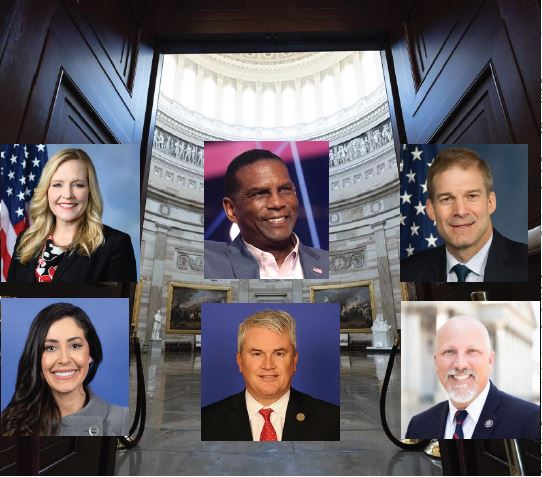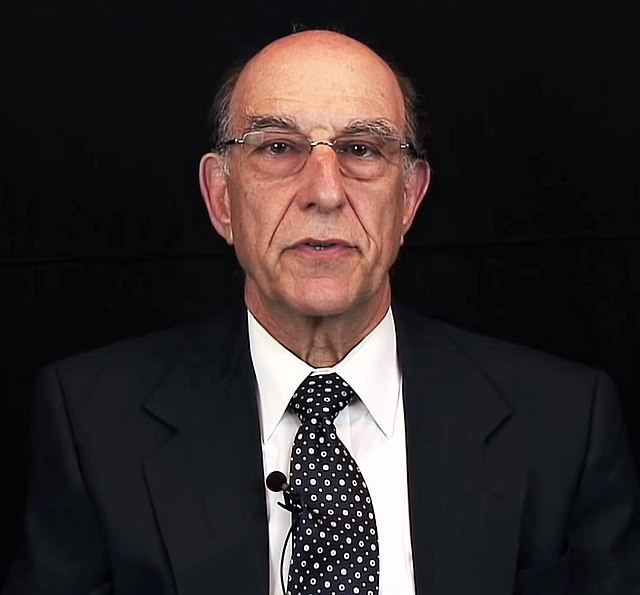Will Team Biden Weaponize Workers’ Pensions?
Big Labor abuse of worker pension and benefit funds as a means of advancing union bosses’ self-aggrandizing policy objectives is a familiar phenomenon.

Thanks largely to relentless grassroots activism by members of the National Right to Work Committee, the number of congressional cosponsors of the forced-dues repeal legislation introduced in the U.S. House and Senate early this year continues to rise.
H.R.1200 and S.532, the National Right to Work measures respectively brought up in the 2023-24 Congress by Rep. Joe Wilson (R-S.C.) and Sen. Rand Paul (RKy.), had a combined total of over 100 cosponsors as this Newsletter was being packaged in early June.
These bills would not add a single word to federal labor law. Instead, they would simply repeal the current provisions in the federal code that authorize and promote the termination of employees for refusal to fork over money to an unwanted union.
“When H.R.1200 or S.532 becomes law, private-sector employees in all 50 states will have the freedom to choose as individuals whether to join or bankroll a union,” explained Right to Work President Mark Mix.
“No employees covered by federal labor statutes will be fired for refusing to pay dues or fees to a union they would never join voluntarily.”
Compulsory unionism is, above all, a moral issue. At the same time, federal forced-dues repeal, otherwise known as the National Right to Work Act, is among the most significantly beneficial economic reforms that Congress could pass in the 2023-24 session.
To illustrate the point, Mr. Mix called attention to a recent National Institute for Labor Relations Research analysis showing that the mean cost of living adjusted, per capita disposable income in Right to Work states in 2022 was $54,465 — roughly $2,600 higher than the forced-dues state average.
The Institute’s sources for this analysis were the U.S. Census Bureau (BOC), the Missouri Economic Research and Information Center (a state government agency), and the nonpartisan, Washington, D.C.-based Tax Foundation.
“Working men and women find again and again that they cannot provide as well for their families in states that continue to allow forced union dues as they can in states that have adopted laws protecting the Right to Work,” commented Mr. Mix.
“That’s why,” Mr. Mix continued, “when they have a choice, working-aged people prefer not to live in forced-unionism states, as BOC data continue to confirm, year after year.”
Hard-working, productive employees who happen to be employed by a unionized business have an additional incentive to move to a Right to Work state.

As even Richard Rothstein, a longtime researcher at the pro-forced unionism Economic Policy Institute, has admitted, union contracts often punish productive workers with lower paychecks:
“In [unionized] firms, wages of lower paid workers are raised above the market rate, with the increase offset . . . [in part] by reducing pay of the most productive workers. If firms with this practice are rare, competitors will be able to bid away their best workers.”
Though union bosses insist that workers subject to their monopoly bargaining should be forced to pay for the supposed “benefits” of unionization, it is clear that many workers are made worse off by unions’ one-size-fits-all contracts.
Mr. Rothstein is far from the only academic advocate of compulsory unionism to concede this point.
Even Harvard’s Richard Freeman, arguably the leading academic apologist for Big Labor monopolists in America, has publicly commended union bosses for their success in “removing performance judgments as a factor in determining individual workers’ pay.”
Nearly all private-sector workers in the 27 current Right to Work states are already protected from forced union dues. In fact, thanks largely to decades of activism by National Right to Work Committee supporters, today more than half of all American workers are protected by state Right to Work laws.
But workers in non-Right to Work states can still be fired for refusing to give money to union bosses, even if those union bosses are corrupt, incompetent, and/or focused on political advocacy totally contrary to workers’ values.
And the Big Labor-dominated legislatures in states like California and New York would never dream of cutting off the forced-dues revenue streams that help keep them in office by passing Right to Work.
“It’s a vicious cycle,” said Mr. Mix. “Union bosses funnel billions of dollars in workers’ dues money every election cycle into political activity.
“The union-label politicians who routinely get elected and reelected with Big Labor’s money overwhelmingly favor higher taxes, more spending, more stifling regulations on businesses, and — of course — expanded powers for the union bosses who paid to get them elected.
“The policies enacted by these forced dues-funded politicians stifle job creation and slow economic growth everywhere. But the damage is greatest in states where union bosses take the most money from workers who would be fired for refusing to pay up.”
To help workers in all 50 states, including those working in federal enclaves and selected industries not subject to state Right to Work laws, the
National Right to Work Act would remove all the sections of federal law that allowed compulsory dues in the first place.
Specifically, the twin bills introduced by Congressman Wilson and Sen. Paul would delete the sections of the National Labor Relations Act and Railway Labor Act that authorize forced union dues, shrinking, not growing, the federal code, while freeing millions of workers from forced unionism.
Mr. Mix declared that the over two million Committee members would continue raising the pressure on members of both the House and the Senate this year:
“A flood of petitions, emails, and phone calls from our members has already had a massive impact on Capitol Hill.
“Politicians have a simple choice to make: either support the National Right to Work Act, or explain to their constituents why they think workers ought to be forced to give up a portion of their paychecks to union bosses they oppose.”
This article was originally published in our monthly newsletter. Go here to access previous newsletter posts.
To support our cause and help end forced unionism, go here to donate.

Big Labor abuse of worker pension and benefit funds as a means of advancing union bosses’ self-aggrandizing policy objectives is a familiar phenomenon.

Leaked CTU Proposals Won’t Do Anything to Improve Schools’ Poor Performance

What impact does handing a union monopoly power to deal with your employer on matters concerning your pay, benefits, and work rules have on your pay?